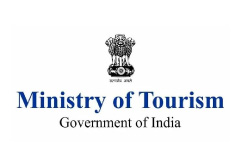Services

Corporate Strategy
What is a Corporate Strategy?
A strategy is a collection of decisions and reactions designed to help you accomplish your primary objective as quickly and successfully as feasible. It is a special long-term plan or framework designed to deliver on stakeholder and customer/client promises (i.e., shareholder value) and acquire a competitive edge over other market players. The word “strategy” is infused with the idea of taking a less obvious but more calculated approach to accomplish the objective. Strategic controversies frequently disturb the path leading to business objectives. A crucial part of the strategy is to choose between something immediate or seemingly advantageous in favour of something less apparent or less urgent.
Why is Corporate Strategy Required?
A corporate strategy helps a company to prioritise projects and effectively allocate resources. It needs to consider the cost of labour, materials, and other resources required to maintain the operations of any business. Making informed decisions about allocating your resources is critical for your business.
To develop a corporate strategy it is important to understand how organisations having different businesses fit together, how they affect one another, and how the parent company is set up to maximise the processes, people and governance. Business unit strategy, which is concerned with making strategic decisions for a single business, is built on top of corporate strategy.
A corporate strategy provides answers to three fundamental questions:
- In what businesses should they compete?
- What value additions can be made to different business units or subsidiaries within the organization?
- Which new industry they can enter or diversify ?
Any effective corporate strategy involves determining the range of potential activities for the organisation to perform. As a result, it’s critical to have a small number of initiatives with excellent and balanced resource allocation. It establishes reasonable expectations for the businesses and helps the organisation become more competitive.
How can we help?
We assist companies in developing both a corporate strategy as well as a business strategy. Businesses are made up of various functional departments that each conduct a certain type of activity. A corporation must have an overarching strategy that represents its general scope and direction, even while each business unit will have a strategy to fulfil its objectives, specifying what it will do and how. With the use of this approach, several business units can collaborate to meet shareholders’ expectations and accomplish certain objectives.
The four fundamental elements of a corporate strategy are:
- Allocation of resources: Business leaders must distribute capital and human resources effectively to optimise the firm’s worth.
- People: Determining core competencies and ensuring an even distribution throughout the company. placing leaders in jobs where they can contribute and bring the most value.
- Capital: Distributing capital among enterprises in order to maximise its risk-adjusted return.
- Allocating capital between internal (projects) and external opportunities after evaluating external opportunities (mergers and acquisitions).
- Organization Design: Having a corporate structure that optimises value and guarantees the company’s smooth functioning of the firm. It entails deciding the function of the corporate headquarters (centralised or decentralised) as well as the reporting relationships between various business units and people. The corporate head office has the authority to choose the degree of autonomy that should be granted to various business units (whether top-down or bottom-up). Establishing individual reporting structures, connecting company processes and units to prevent duplication, deciding on authority delegation, and other tasks are all part of the organisational structure.
- Portfolio Management: Deciding which business units complement one another, which to stay in and which to leave, generating strategic alternatives by securing new prospects, managing through diversification, assuring that the portfolio of enterprises is suitable to the present market, and maximising the value of the enterprise.
- Strategic Trade-off: The ability of corporate strategy to balance risk and return trade-offs across the company is a crucial component of its role. Having an overall perspective of all the businesses ensures the optimum levels of risk and return.
Types of Corporate Strategy:
- Corporate Growth Strategy:
A growth strategy, which may be short- or long-term, allows you to increase your market share. Growth in sales, earnings, products, services, and market share are all included in the growth strategy. Because it boosts sales and earnings, lowering the cost of goods sold is also a growth factor. Companies were compelled by liberalisation, globalisation, and privatisation to cut production costs while still producing high-quality goods.
- Corporate Diversification Strategy:
Corporate diversification strategy is a way to expand into new services, markets, or product lines while utilising significantly diverse knowledge, technology, and capabilities. Diversification is the act of an established company or corporation expanding into a new market. With the help of this corporate strategy, the company can now operate in a new market niche. Because it can result in amazing benefits with risks, diversification might prove to be a difficult decision for the company.
Our strategy experts assist company executives in implementing a corporate strategy that satisfies the demands of the rapidly changing market expectations. We help company executives develop a clear strategy to accomplish their organisations’ goals. You may find some of the prestigious certifications we have previously attained on the page below. We have extensive expertise assisting businesses with the development of their corporate strategie.
FAQs
Corporate strategy is the overarching plan that defines an organization’s goals, objectives, and the actions it will take to achieve them. It’s vital for your company as it provides direction, helps in resource allocation, and ensures that all aspects of your business work cohesively to achieve long-term success.
Our firm specializes in helping businesses create and implement corporate strategies tailored to their unique needs. We work closely with your team to analyze your current position, industry dynamics, and competitive landscape to formulate a strategic plan that drives growth and profitability.
A successful corporate strategy typically includes elements such as defining the mission and vision, setting clear objectives, conducting a SWOT analysis, establishing core values, outlining strategic initiatives, and creating an implementation roadmap.
We employ a collaborative approach, working closely with your leadership team and key stakeholders. We conduct interviews, analyze data, and assess market trends and competitive intelligence to inform our strategic recommendations.
We build flexibility into your corporate strategy to accommodate changing market dynamics. Regular reviews and adjustments are recommended to keep the strategy relevant and responsive to evolving business environments.
Absolutely. We assist in identifying relevant KPIs and performance metrics to monitor the progress and success of your corporate strategy. This ensures that you can measure the impact of your strategic initiatives effectively.
Yes, we provide implementation support to help you execute the strategic initiatives effectively. Our consultants can guide your team through the process and ensure alignment with the strategic plan.
Yes, we can integrate sustainability and CSR considerations into your corporate strategy to align your organization’s goals with ethical and environmental responsibilities.
Our commitment to your success doesn’t end with the development of your corporate strategy. We offer ongoing consulting services that may include performance tracking, strategy adjustments, and assistance with any challenges that arise as you execute your strategic plan.
To initiate our partnership, simply reach out to us through our website or contact us directly. We will schedule an initial consultation to discuss your specific requirements and objectives. Following this consultation, we will provide a tailored plan of action to meet your corporate strategy needs effectively and efficiently. Your success is our priority, and we look forward to helping you achieve your strategic goals.















